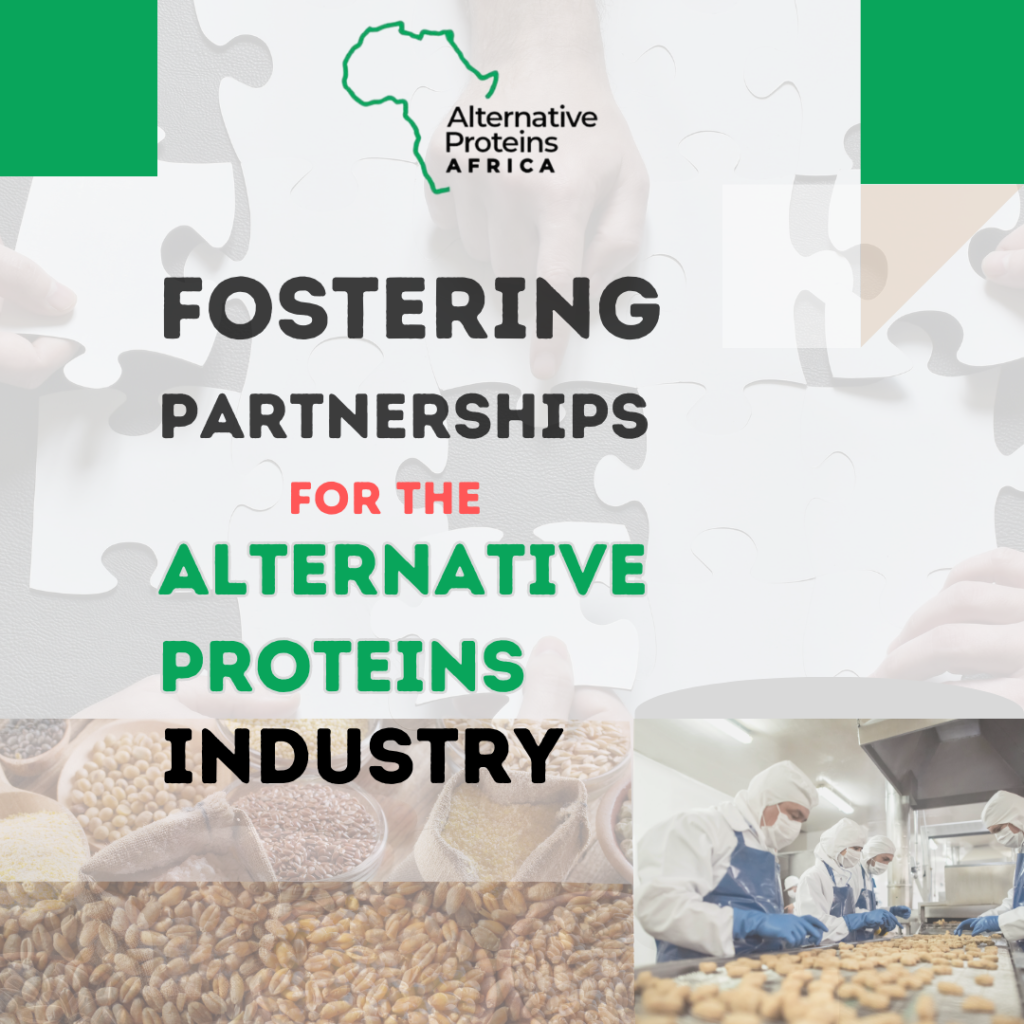
How can the alternative protein industry gain much-needed exposure and acceptance if not for the efforts of collaborations and partnerships? These are justified since the goal is to enhance the growth of the industry and consequently transition into a sustainable food system globally. For a promising sector like Alternative Proteins, interlocking knowledge, capacity, financial and other resources is the only way it would scale up. Therefore, individuals, associations, organisations, governments, and multinational players all have a role in the upscale of the alternative protein industry.
In our earlier post, as you might have read, we highlighted the multisectoral impact of alternative proteins, where its One Health implication was discussed. We were able to see that alternative proteins significantly affect the health of humans, animals, and the shared environment. This multisectoral effect signals that the alternative proteins should pique the interest of different stakeholders.
For instance, partnering with stakeholders in the human health sector would help identify further health and nutritional benefits of some alternative protein sources and better advise patients. Harmful substances such as allergens in some plant-based substitutes would also be identified to prevent their adverse impact on health.
Similarly, to guarantee the responsible sourcing of raw materials, the environmental health sector can offer expertise in sustainable agricultural practices, resource management, conservation, and biodiversity.
Furthermore, for alternative proteins to have a smooth drive in a market saturated with traditional protein products, there is a need for partnership between conventional food companies and alternative protein startups. For one, this will enable sharing of knowledge. The already established production and distribution structure of these conventional food companies could be leveraged to scale alternative protein companies and products.
An example of such a partnership resulted in McPlant burger, a plant-based burger co-developed by Beyond Meat, a plant-based meat company and McDonald’s. Although this was a trial to ascertain the market acceptability of plant-based meat, the major challenging areas evident in the low sales recorded provide an opportunity for improvement. A similar partnership was also initiated last year between Beyond Meat and PepsiCo, leading to innovative snack and beverage products made with plant-based protein.
Startups such as Perfect Day, Inc., best known as the creator of the world’s first animal-free milk protein, have expanded and risen to potential due to partnerships with different investors and other food companies. This particular business has been able to mobilise resources and has witnessed a series of upscales.
Another form of partnership would be in research and development. Why so? Partnerships across industries, academia, civil societies, and government have been pivotal in driving needed growth. To the advantage of the alternative protein sector, the collaboration between the industry and academic or research institutions would advance the generation of new knowledge to improve the workflow and the product, thus addressing several challenging areas. Not-for-profit institutions, such as Good Food Institute and The Green Protein, contribute maximally to the sector by embracing the power of collaborative efforts.
The Good Food Institute has a partnership directory for alternative protein researchers in various research areas available for partnership. This further reinforces how crucial partnership is for the scaling of the sector. A directory such as this provides easy access to information that could foster partnership.
Similarly, through collaborative effort, the government can develop and implement evidence-based policies that can catalyse the sector’s growth. The approval of the sales of cell-cultivated proteins in countries such as Singapore and the USA signals regulatory support from their respective government. Such support and even more are solicited from the government.
An African proverb says, “If you want to go fast, go alone. If you want to go far, go together.” Partnerships will help the alternative protein industry achieve its full potential by leveraging the resourcefulness and strengths of collaborators and partners. These synergistic partnerships would enable alternative protein startups to scale and enhance transitioning into more sustainable and ethical practices.

